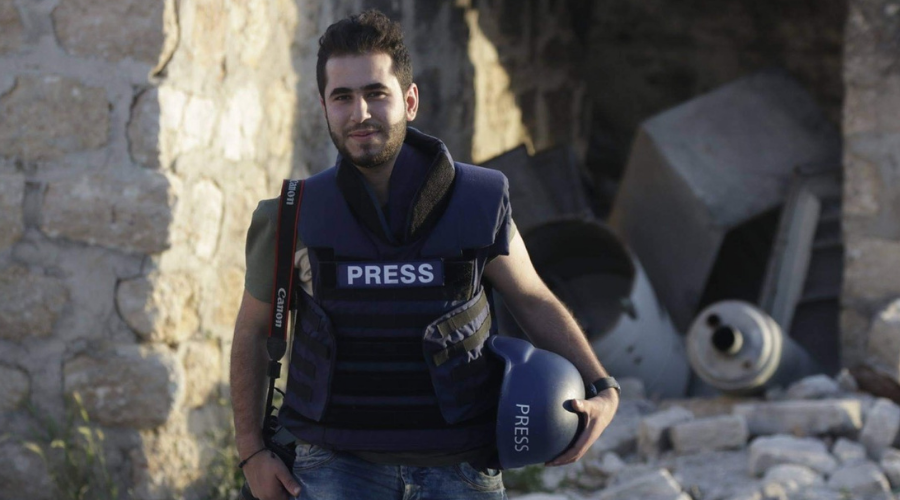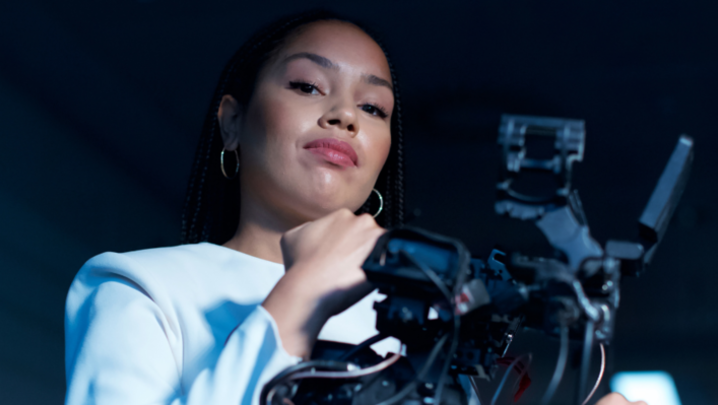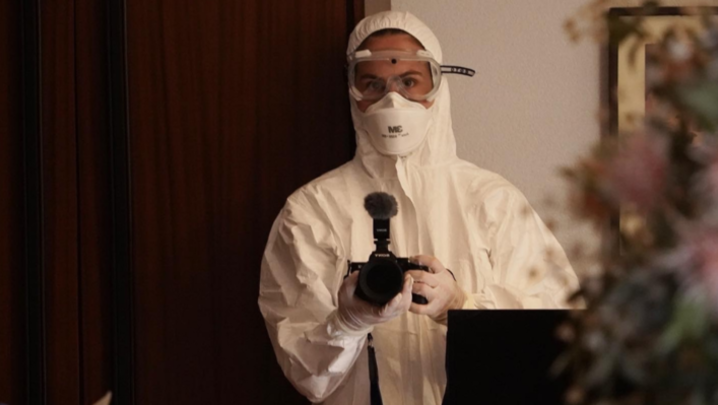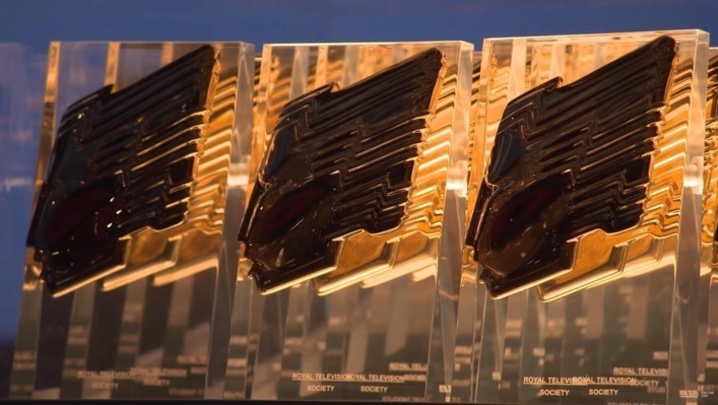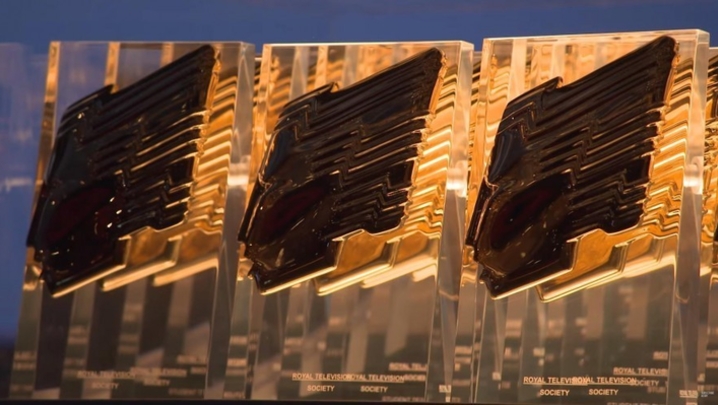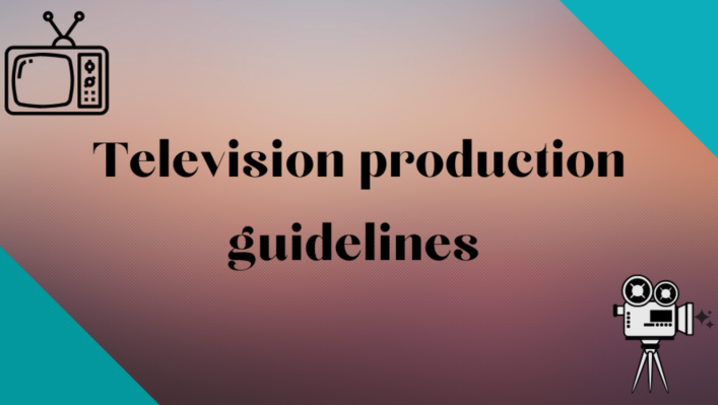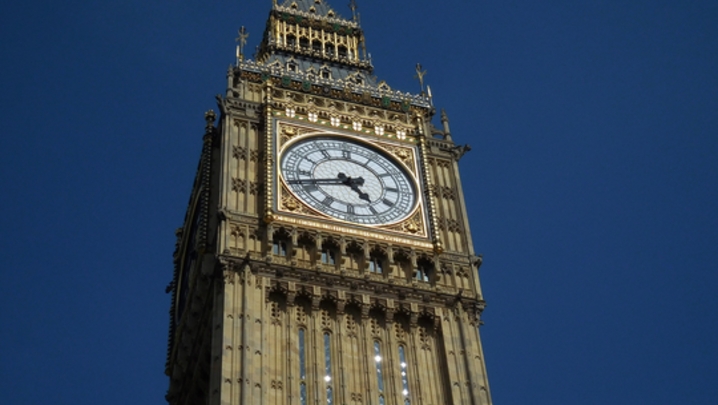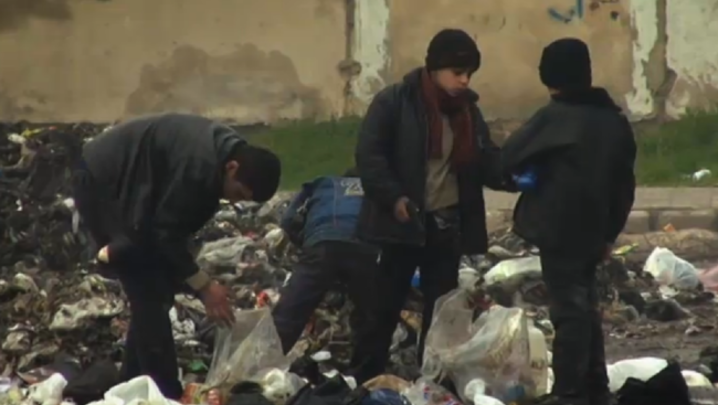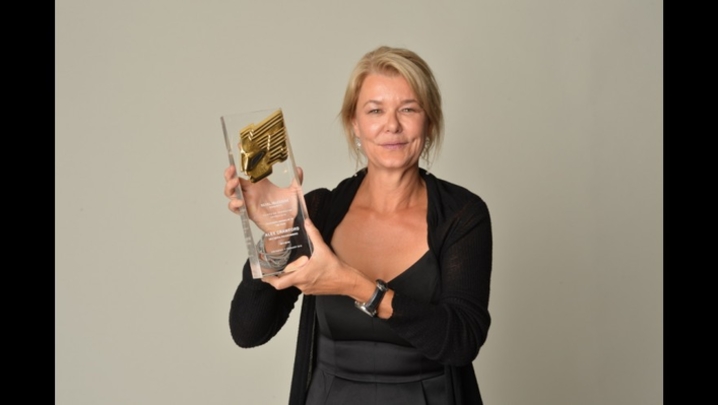At just 26 years old, Syrian journalist Fadi Al Halabi has spent the last ten years documenting the transformation of his home city Aleppo into one of the world’s most dangerous conflict zones.
Reporting from the last rebel-controlled enclave of Idlib, Al Halabi skilfully navigates fragile alliances and the constant threat of danger to show the world the human suffering and tragic loss that has become a daily reality.
He tells us about building trustful relationships with his contributors, retaining mental strength amid the horrors of war, and finding hope in the unrelenting determination of Syrian children.
Describe your journey to becoming a journalist in Syria?
It was a coincidence. I just started filming the anti-regime demonstrations in 2011. After that I undertook media training courses to develop my skills. First, I worked for local Media agencies in Aleppo and then progressed to bigger, international organisations. That was the most important step in my journalistic journey to date.
When the peaceful revolution turned into an armed conflict, I found out that my duty was to convey the image to the outside world. This role suited me as there were so many atrocities to pay attention to during the bloody war.
Being nominated for an award makes me very happy, because it tells me that I did my job as a journalist in delivering the stories of the Syrians to the world.
What does your role as a field producer entail?
The humanitarian stories in Syria need an army of journalists to convey them to the world, so I take it upon myself to contribute to this important aspect of the Syrian tragedy, in the hope that one day, the world will help to alleviate the miserable conditions that the Syrian people live in.
As someone reporting from one of the most challenging and dangerous conflict zones, what motivates you to continue with your journalistic work despite such significant challenges?
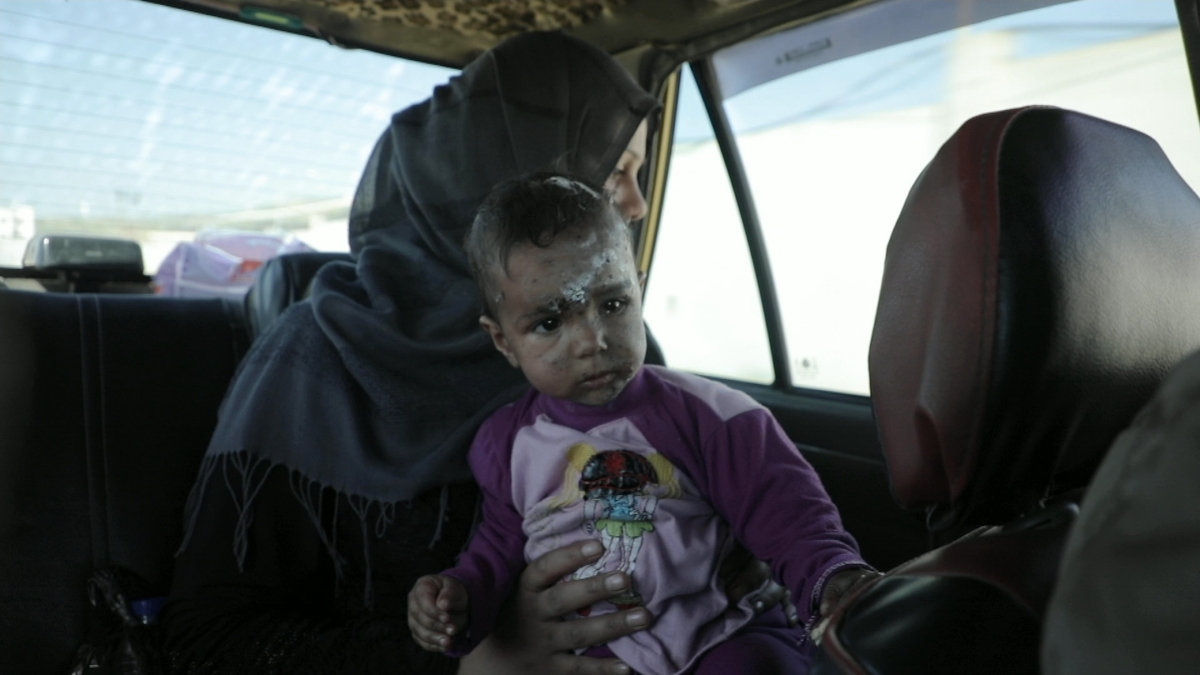
The Syrian people who are ruled by dictatorial regime deserve as much help as possible.
I cannot ignore what is happening under the pretext of danger. The Syrian tragedy demands total commitment from someone in my position.
Your reports deal with incredibly sensitive stories; how do you go about approaching the people in your features and building a relationship with them?
Creating trust with my contributors is the most complicated part of my work.
It is an essential brick in the building of the relationship between me and the people who lost trust in the media’s ability or willingness to change their situation.
This is why I always try to emphasize to them the importance of journalism and its amazing ability to change history.
As a reporter inside Idlib, how do you navigate the complex and at times fragile relationship between conflicting groups of people?
Everyone has their opinion. I try to keep the same distance from all parties during my work, but in general, I belong to the revolution and embrace its goals.
Are there any particular stories you’ve worked on that stand out to you?
Many stories have left a great impact on me, I cannot choose one. I have always had to be strong mentally, to be able to deal with the horrors of the war and the terrible experiences and stories belonging to the subjects of my films.
You initially longed to be a professional footballer, were there any players that inspired you as a teenager?
Football was a dream from a young age, but unfortunately it did not work out in my favour. It’s difficult to achieve your dream in a country governed by corrupt people.
Like Luka Modric, when I try to sleep, I hear all the sounds of warplanes, mortars, and bombing. I can relate to Modric and his experience as a young man from living in a war zone, losing his father, his home and living in a refugee camp, to succeeding and winning in the end. Like Modric, I lost my home and lots of friends, but I am still fighting.
Your reports often feature children, do you adapt your journalistic approach when speaking with children as opposed to adults?
Children in particular are the most oppressed group in Syria alongside women, and they are often afraid of cooperating with the media. So, I must always find ways or words to convince them of the importance of being in front of the camera, without any hesitations.
Have you learned anything hopeful or insightful from the children that you have interviewed over the course of your career?
One of the stories I produced was about a child who lost his leg in airstrike on his home. Despite his predicament, he returned to play football – his determination was stronger than anything I have ever come across in this job.
Looking to the future, are there any particular topics or stories you want to cover?
I hope to film more stories about women and children in Syria. They are neglected, suffering like hell and each one has their unique story. This is why they deserve to be prioritised among journalists.
Fadi Al Halabi was nominated for the RTS Young Talent of the Year award at the RTS Television Journalism Awards 2021 alongside Renata Brito and Rianna Croxford.

